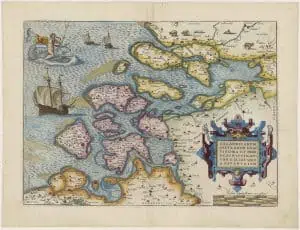Back to:
My chinese name
“It ain’t what they call you,
it’s what you answer to”
W.C. Fields
 According to legends, Chinese surnames originated from the Emperor Fu Xi (2852BC). He standardized all Chinese surnames and defined matrimonial relationship. Thus a proper system of population census was established. It was also believed that there is a close relationship between surnames and totem worship; the early Chinese adopted the names or symbols of certain animals as their surname (e.g. Long (2) which means dragon.)
According to legends, Chinese surnames originated from the Emperor Fu Xi (2852BC). He standardized all Chinese surnames and defined matrimonial relationship. Thus a proper system of population census was established. It was also believed that there is a close relationship between surnames and totem worship; the early Chinese adopted the names or symbols of certain animals as their surname (e.g. Long (2) which means dragon.)
The book, “Surnames of a Hundred Families”, which was popular in China during the old days, was written more than 1,000 years ago during the Northern Song Dynasty (960 AD).It records 438 surnames of which 408 are single-word surnames and 30 were double-word surnames.
According to the latest statistics from China, Chinese with the surname Zhang alone number more than 100 million, making it probably the surname which the most number of the Chinese have. Another set of statistics compiled in 1977 reveals that the number of the Chinese with the first 10 major surnames make up 40% of the Chinese population.
The 10 major Chinese surnames are:
Zhang, Wang, Li, Zhao, Chen, Yang, Wu, Liu, Huang and Zhou.
Below are the next 10 major surnames.
The Chinese with these surnames make up over 10% of the Chinese population:
Xu, Zhu, Lin, Sun, Ma, Gao, Hu, Zheng, Guo and Xiao.
The number of the Chinese in the third category of 10 major surnames
make up just about 10% of the population:
Xie, He, Xu, Song, Shen, Luo, Han, Deng, Liang and Ye.
The following 15 surnames form the fouth largest group of the Chinese surnames are:
Fang, Cui, Cheng, Pan, Cao, Feng, Wang, Cai, Yuan, Lu, Tang, Qian, Du, Peng and Lu.
A total of 70% of the Chinese population have one of the surnames above.
The surnames of the remaining 30% are comparatively rare.
Some of these surnames are:
Mao, Jiang, Bai, Wen, Guan, Liao, Miao and Chi.
| Dynasties | Period | |||
|
Xia (Hsia) |
2205 B.C.-1766 B.C. | |||
|
Shang |
1766 B.C.-1122 B.C. | |||
|
Zhou (Chow) |
Western Zhou (Chow) | 1122 B.C.-770 B.C. | ||
| Eastern Zhou (Chow) | 770 B.C.-256 B.C. | |||
| Spring & Autumn Annals | 770 B.C.-476 B.C. | |||
| Warring States Period | 475 B.C.-221 B.C. | |||
|
Qin (Chin) |
221 B.C.-207 B.C. |
|||
|
Han |
Western Han | 206 B.C.- 24 | ||
| Estern Han | 25-220 | |||
|
Three Kingdoms Period |
Wei | 220-265 | ||
| Shu | 221-263 | |||
| Wu | 222-280 | |||
|
Jin (Tsin) |
Western Jin (Tsin) | 265-316 | ||
| Eastern Jin (Tsin) | 317-420 | |||
|
Southern and Northern Dynasties |
Southern Dynasty | Song | 420-479 | |
| Qi | 479-502 | |||
| Liang | 502-557 | |||
| Chen | 557-589 | |||
| Northern Dynasty | Northern Wei | 386-534 | ||
| Eastern Wei | 534-550 | |||
| Northern Qi | 550-577 | |||
| Western Wei | 535-556 | |||
| Northern Zhou | 557-580 | |||
|
Sui |
581-618 | |||
|
Tang |
618-907 | |||
| Five Dynasties | Later Liang | 907-923 | ||
| Later Tang | 923-936 | |||
| Later Jin | 936-947 | |||
| Later Han | 947-950 | |||
| Later Zhou | 951-960 | |||
|
Song (Sung) |
Northern Song (Sung) | 960-1127 | ||
| Southern Song (Sung) | 1127-1280 | |||
|
Liao |
916-1125 | |||
|
Jin |
1115-1234 | |||
|
Yuan |
1271-1368 | |||
|
Ming |
1368-1644 | |||
| 1644-1911 | ||||
|
Republic of China (ROC) |
1911- (moved to Taiwan after 1949) | |||
|
People’s Republic of China (PRC) |
1949- | |||
Bron: Wikipedia, This is a file from the Wikimedia Commons.




